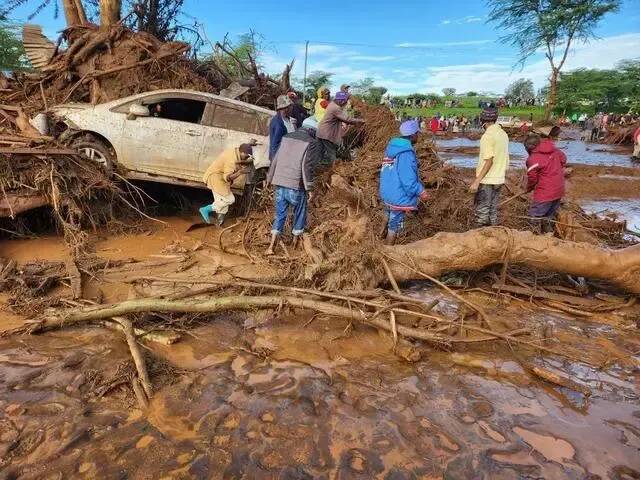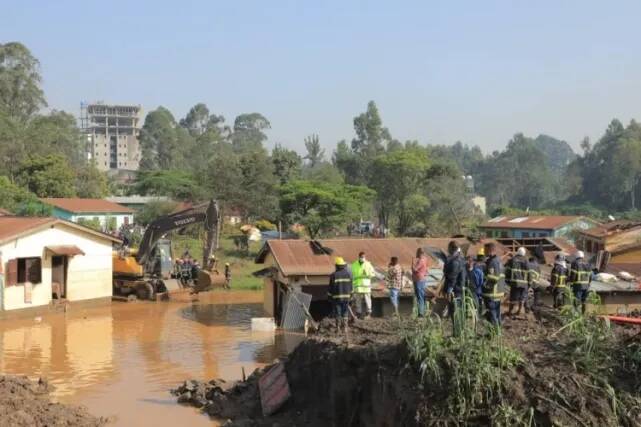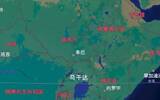Floods in Africa! Farmland in Ethiopia and other production areas suffered major floods
Recently, extreme weather has continued to affect the world, and it has also been hit in Africa, where many countries in East Africa have experienced heavy rains and caused floods.
Floods triggered by climate fluctuations have displaced more than 600,000 people in East Africa, the international climate watchdog warned yesterday. And in the coming weeks, further torrential rains could pose a serious threat to East African countries in nine parts of Ethiopia.
According to the United Nations, bad weather conditions brought about by El Ni ñ o have affected at least 250000 people in Kenya, while another 179000 people have been affected in Burundi, 127000 in Somalia and 126000 in Tanzania.
In addition, torrential rains and floods have damaged basic measures such as houses, schools and roads in areas of these countries, as well as crops such as coffee and farmland for cultivation.
The major coffee producing areas in Kenya, such as Neri Nyeri, Nakuru Nakuru and Kiambu Kiambu, are currently in the flowering and fruiting period, and do not enter the picking period until June. This rainstorm and floods will seriously affect the next Kenyan coffee season.

In Tanzania's main coffee producing area, Kilimanjaro, a landslide caused by torrential rains, a large amount of soil rolled down the mountain, directly destroying farmland.
According to the United Nations Office for the Coordination of Humanitarian Affairs (UNOCHA), the rainy season in these areas, which will last until May, has had a devastating impact and the situation is likely to deteriorate soon.
In addition, Ethiopia's Somalian and Oromia regions have also been hit by extreme rains and mountain torrents, which, according to statistics, have killed at least 50 people, displaced more than 30,000 families, and killed at least 10,000 livestock. Crops and farmland were destroyed.

But then, torrential rains will move to the middle of the country, affecting many areas in the central and southern parts of the country, particularly the well-known coffee producing area of Sidamo and nearby areas, where 145000 residents are said to be affected. At present, it is in the growing period of Ethiopian coffee.
In addition, in the coffee-producing areas of Ethiopia, coffee trees are basically planted next to farmers, with about 100 coffee trees per household, which is the planting pattern on which most small farmers depend for survival. However, due to the flooding, homes and farmland have been destroyed by heavy rainfall and floods, which will eventually lead to a reduction in the production of Ethiopian coffee in the new season.
Although currently affected by the disaster, there is also good news. The Ethiopian government recently announced the launch of the country's first special economic zone, the Jada Special Economic Zone. In addition, it has signed contracts with Chinese enterprises to cooperate in the construction and development of the Le Mei Free Trade Zone in the Jada Special Economic Zone.
According to the Investment Agreement of the Le Mei Free Trade Zone of the Jada Special Economic Zone signed by the two sides, the two sides will introduce international advanced technology and management experience and make use of local resources. the Merlot Free Trade Zone will be built into a comprehensive free trade zone integrating production, trade, research and development, and will focus on coffee processing, bamboo and wood processing, machinery and equipment manufacturing and other fields.
Important Notice :
前街咖啡 FrontStreet Coffee has moved to new addredd:
FrontStreet Coffee Address: 315,Donghua East Road,GuangZhou
Tel:020 38364473
- Prev

Introduction of varieties grown in Uganda coffee producing areas in African countries
African coffee has a very high reputation in the global coffee market because Africa has many coffee-producing countries, and the African country Ethiopia is recognized as the birthplace. There are also many coffee-producing countries that cannot be underestimated, such as the growing Uganda. Uganda (The Repub)
- Next

How to make traditional Roman espresso? What are the parameter ratios for the sharing teaching of lemon coffee making?
Lemon is a fruit with a fragrant fragrance but extremely sour taste. There is also a description of lemon in the flavor of coffee! When we drink a bright, rising acid with a fresh aroma in a cup of single-piece coffee, then we will describe this flavor as "lemon." But this flavor only
Related
- What grade does Jamaica Blue Mountain No. 1 coffee belong to and how to drink it better? What is the highest grade of Blue Mountain coffee for coffee aristocrats?
- What are the flavor characteristics of the world-famous coffee Blue Mountain No. 1 Golden Mantelin? What are the characteristics of deep-roasted bitter coffee?
- Can I make coffee a second time in an Italian hand-brewed mocha pot? Why can't coffee be brewed several times like tea leaves?
- Hand-brewed coffee flows with a knife and a tornado. How to brew it? What is the proportion of grinding water and water temperature divided into?
- What is the difference between Indonesian Sumatra Mantinin coffee and gold Mantinin? How to distinguish between real and fake golden Mantelin coffee?
- What does bypass mean in coffee? Why can hand-brewed coffee and water make it better?
- Unexpected! Ruixing Telunsu lattes use a smoothie machine to foam milk?!
- % Arabia's first store in Henan opens into the village?! Netizen: Thought it was P's
- Does an authentic standard mocha coffee recipe use chocolate sauce or powder? Mocha Latte/Dirty Coffee/Salty Mocha Coffee Recipe Share!
- What is the difference between Vietnam egg coffee and Norway egg coffee? Hand-brewed single product coffee filter paper filter cloth filter flat solution!

